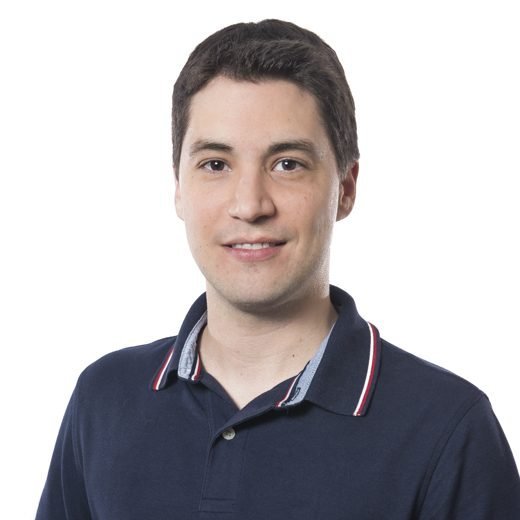Professor is awarded in public notice for young researchers
Barros's project is ambitious in the sense that it tries to attack main open questions in the area of neural networks. Credit: Ascom
The professor of Graduate Program in Computer Science Rodrigo Barros was one of the 23 young researchers selected by < a href = "https://serrapilheira.org/3a-chamada-publica-de-apoio-a-ciencia-seleciona-23-jovens-pesquisadores/"> 3rd public call from support for the Instituto Serrapilheira science . The winners will receive up to R $ 100 thousand each, to invest in their projects in the areas of natural sciences, computer science and mathematics.
Barros's project, entitled AI for social well-being: building fair neural networks, explainable, resistant to confounding factors and with limited supervision focuses on a specific area of Artificial Intelligence (AI): the area of r neural edes (commonly called deep learning , or deep learning).
Neural networks are computer systems with interconnected nodes that function like neurons in the human brain. Using algorithms, they can recognize hidden patterns and correlations in raw data, group and classify them, and - over time - learn and improve continuously.
The main objective of the contemplated project will be to verify the possibility of building neural network approaches to problems related to social well-being. Health, education and global warming are themes that should be addressed during the execution of the project.
Technology at the service of society
Barros' project is ambitious in the sense that it tries to tackle the main open questions in the area of neural networks. We seek to know issues such as developing robust neural networks, how to ensure that the model from existing data presents some degree of fairness (fairness), how to learn how neural networks are actually learning and how to learn about databases that have little amount of supervision (annotation) by humans.
According to the researcher, the central focus of the project is the potential social impact it can generate. “When tackling the biggest challenges in the area of neural networks, we will seek to centralize solutions developed for areas such as analysis of chest medical images to assist in the Covid-19 pandemic, as well as understand and learn the main factors behind one of the biggest challenges of human history, which is global warming ”, he adds.
With the amount received in the public notice, Rodrigo Barros says that he will invest in doctoral and master's scholarships, with the aim of encouraging young talents from his research group to work with some of the greatest challenges faced in the area. In addition, an AI research group for social welfare should be created, with the aim of making PUCRS a reference in the area.


